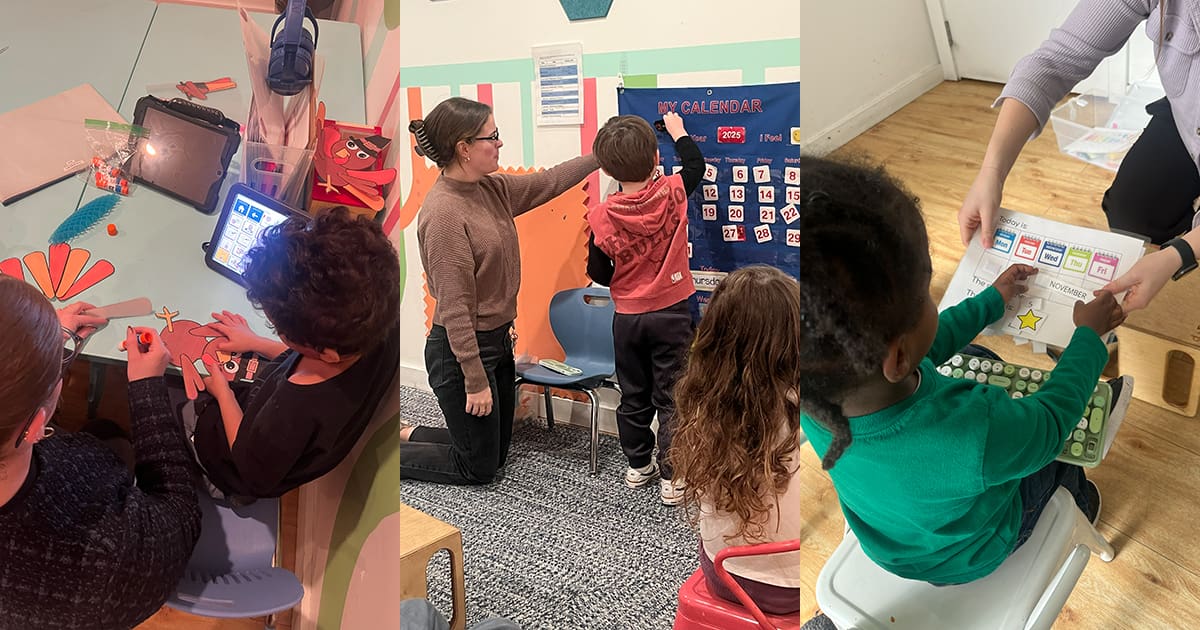Share this Post

Parenting a child with autism is a journey filled with love, learning, and unique challenges. Home can be a place of security and growth for your child—a space where they can develop key skills, manage sensory sensitivities, and build meaningful connections. With thoughtful strategies, you can create a supportive home environment that nurtures your child’s strengths and helps them navigate challenges with confidence.
This guide is designed to provide practical, compassionate parenting tips that you can implement at home. Whether your goal is to improve communication, manage meltdowns, or build a daily routine, these strategies will help your child feel secure and empowered.
1. Establish Predictable Daily Routines
Children with autism often thrive on structure and predictability. A consistent daily routine helps them understand what to expect, reducing anxiety and promoting a sense of control.
How to Build a Routine:
- Create a visual schedule: Use pictures, icons, or written words to represent activities throughout the day. Include mealtimes, play, school, and bedtime routines.
- Give advance warnings before transitions: Let your child know when it’s time to switch activities. For example, “In 5 minutes, we’ll clean up and start dinner.”
- Stick to consistent meal and sleep times: Predictability in these areas promotes physical and emotional well-being.
Pro Tip: Build flexibility into your routine by designating “free time” for spontaneous activities. This helps your child practice adapting to change in a safe way.
2. Encourage Clear and Consistent Communication
Many children with autism face challenges with communication, which can lead to frustration. Creating a communication-friendly home environment helps reduce stress and improves understanding between you and your child.
Ways to Foster Communication:
- Use visual aids: Picture boards, flashcards, or communication apps can help children express themselves if verbal communication is difficult.
- Model simple language: Use short, clear sentences and repeat key words. For example, instead of “Can you put the toys in the box before lunch?” say, “Toys in box, then lunch.”
- Give choices: Offering options, such as “Do you want the red cup or the blue cup?” empowers your child to communicate their preferences.
Pro Tip: Celebrate all communication attempts, whether verbal or nonverbal, to build confidence.
3. Create a Sensory-Friendly Space
Sensory sensitivities are common in children with autism and can lead to overstimulation or discomfort. A sensory-friendly home environment can help your child feel calm and secure.
Tips for a Calming Space:
- Identify sensory triggers: Observe your child to see what stimulates or distresses them, such as loud noises, bright lights, or certain textures.
- Set up a sensory retreat: Designate a quiet area with comforting items like weighted blankets, noise-canceling headphones, or soft cushions.
- Incorporate sensory activities: Include calming activities like squeezing stress balls, playing with sensory bins, or swinging in a hammock.
Pro Tip: Offer both calming and stimulating activities to help your child regulate their sensory needs.
4. Use Positive Reinforcement
Positive reinforcement encourages desired behaviors by rewarding your child when they complete tasks, follow instructions, or display positive social interactions. It helps build self-esteem and promotes long-term behavioral improvements.
How to Use Positive Reinforcement:
- Give specific praise: Instead of saying, “Good job,” say, “Great job sharing your toys with your sister.”
- Use rewards that motivate your child: This could be stickers, extra playtime, or their favorite snack.
- Be consistent: Reward positive behaviors immediately to strengthen the connection between the action and the reward.
Pro Tip: Gradually reduce external rewards over time and replace them with intrinsic motivators, such as verbal praise and self-satisfaction.
5. Manage Meltdowns with Calm and Understanding
Meltdowns are common in children with autism and can be triggered by sensory overload, changes in routine, or frustration. Responding calmly and compassionately can help your child feel safe and regain control.
Steps to Handle Meltdowns:
- Stay calm: Your child may mirror your emotional state, so maintaining your composure is key.
- Remove potential triggers: If possible, move your child to a quieter environment.
- Offer a calming tool: Provide items like a fidget toy, noise-canceling headphones, or a weighted blanket to help them self-soothe.
- Validate their feelings: Let them know their emotions are understood. Say, “I know this is hard. I’m here to help.”
Pro Tip: Reflect on what triggered the meltdown to prevent similar situations in the future.
6. Build Social Skills Through Play
Play is a powerful way for children with autism to practice social skills, develop emotional awareness, and improve communication. Structured play can help your child learn how to take turns, share, and engage with others.
Ideas for Social Play:
- Role-playing games: Act out real-life scenarios like grocery shopping or visiting the doctor to teach social interactions.
- Turn-taking games: Play board games, puzzles, or simple sports to practice waiting for their turn.
- Parallel play: Allow your child to play alongside others before progressing to interactive play.
Pro Tip: Be patient—building social skills takes time. Start with small, manageable interactions.
7. Encourage Independence with Small Tasks
Children with autism can build confidence and a sense of accomplishment by completing age-appropriate tasks independently. Start with small, achievable tasks and gradually increase complexity.
Simple Tasks to Try:
- Setting the table
- Picking out clothes for the day
- Cleaning up toys after play
- Watering plants
Pro Tip: Use step-by-step instructions or visual cues to guide them through the task. Provide positive reinforcement when they succeed.
8. Foster Emotional Awareness and Regulation
Understanding and managing emotions can be difficult for children with autism. Teaching emotional awareness helps them identify their feelings and develop coping strategies.
Ways to Build Emotional Awareness:
- Emotion charts: Use charts with pictures of facial expressions to help your child label their emotions.
- Social stories: Read stories that depict characters experiencing and managing different emotions.
- Calming strategies: Teach coping mechanisms like deep breathing, squeezing a stress ball, or taking a break.
Pro Tip: Consistently model emotional regulation by demonstrating how you handle your own feelings.
9. Stay Connected with Support Networks
Parenting a child with autism can be demanding, and you don’t have to do it alone. Connecting with support groups, therapists, or other parents can provide valuable advice and emotional support.
Where to Find Support:
- Online forums and social media groups
- Local autism support organizations
- Parent workshops and therapy sessions
Pro Tip: Share your experiences with others—you may discover new strategies that work for your family.
10. Celebrate Every Milestone, Big or Small
Every achievement, no matter how small, is a step forward. Celebrate your child’s milestones with joy and pride to encourage further growth.
Ways to Celebrate:
- Give verbal praise: “I’m so proud of you for trying something new!”
- Create a “milestone board” to display their achievements.
- Plan small rewards or family celebrations for major milestones.
Pro Tip: Focus on progress, not perfection. Celebrate the effort as much as the outcome.
Conclusion: Building a Nurturing Home for Your Child
With love, patience, and the right strategies, you can create a home where your child feels safe, supported, and empowered to grow. By incorporating routines, communication strategies, and positive reinforcement, you can help your child build the skills they need to thrive.
At CST Academy, we’re here to support you every step of the way. Our team of dedicated professionals provides personalized programs designed to complement the work you do at home. Contact us today to learn how we can help your child reach their full potential.
Discover Our Pediatric Therapy & Autism Care
ABA Therapy
Support for children with autism.
Autism Evaluation
Expert assessments to identify child needs.
Pediatric Therapy Services
Speech, Occupational, Feeding, and Physical Therapy.
Therapeutic Preschool
A classroom environment designed for early learners with unique needs.

Find the Best Care for Your Child




